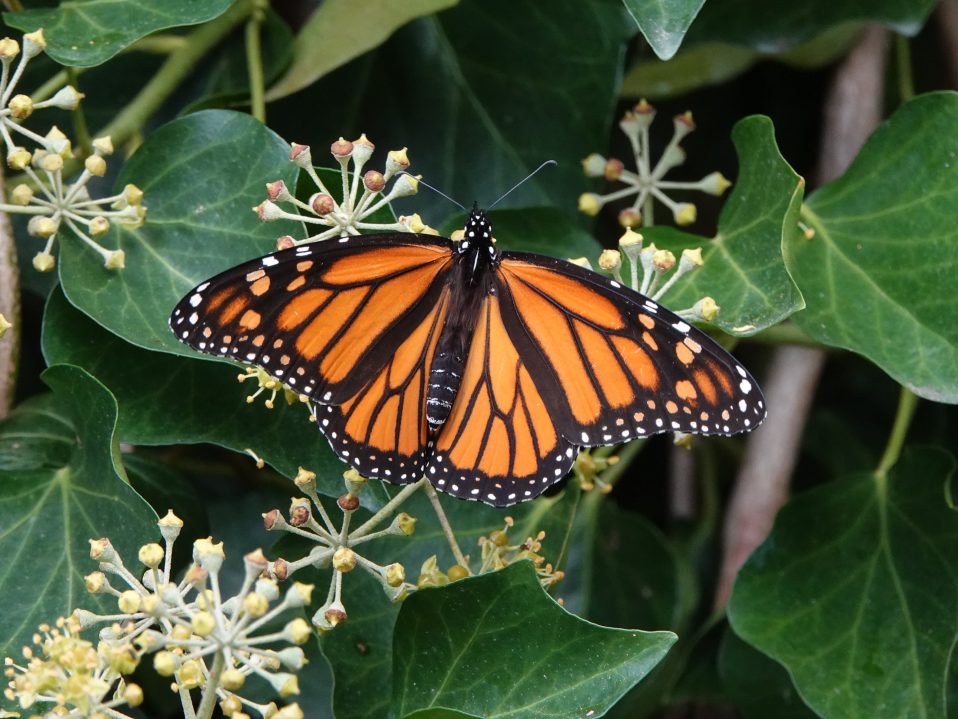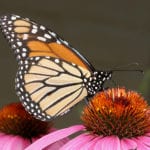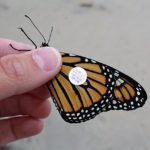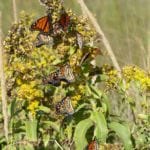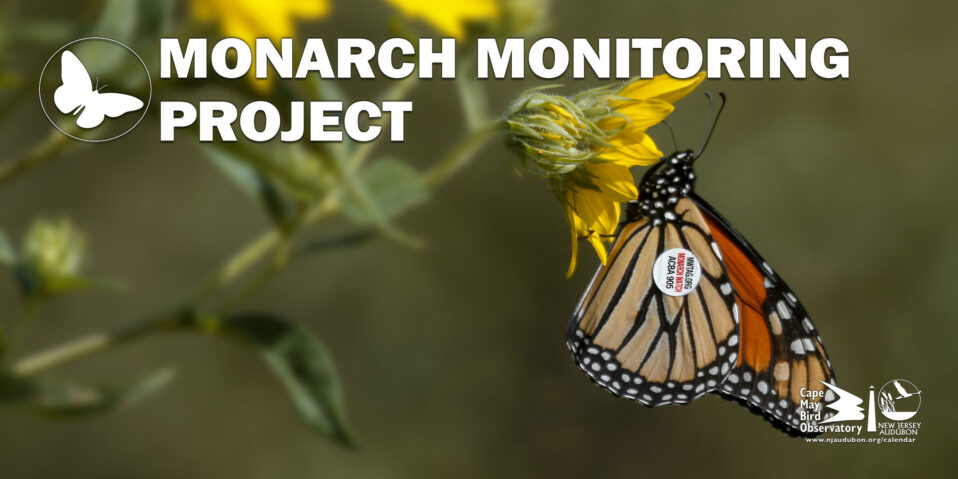The last of our originally scheduled educational programs occurred on October 17th. With the continuation of mild weather and presence of good numbers of monarchs around Cape May, we are pleased to offer two extra “bonus” programs this fall. Pre-registration is required, like all of our programs this fall. To register, please visit the CMBO online calendar https://njaudubon.org/calendar/category/cape-may-bird-observatorys-northwood-center/
Monarch Biology: Friday, October 23, 1:30 to 2:30 pm
Join CMBO Monarch Monitoring Project naturalists for this special program about the Monarch migration through Cape May! We’ll take an easy stroll through a milkweed-filled meadow as you learn about Monarch Butterfly biology and migration. We’ll hope to see monarchs and other butterflies, and we’ll wrap up by tagging one or more monarchs and send them on their way to Mexico. Meet at The Nature Conservancy’s Garrett Family Preserve.
COST: $6 members, $10 nonmembers.
Invasive Mantids: Saturday, October 24, 1:30 to 3:00 pm
Join Naturalist Jack McDonough to learn about the three species of mantids in Cape May and how they’re impacting the Monarch Butterflies. Every summer and fall, hundreds of Monarch Butterflies are hunted and eaten by invasive species of mantis. Monarchs, who have already been so heavily in decline in recent years due to anthropogenic activity, suffer even further from invasive mantis. Our goal here at the Cape May Monarch Monitoring Project is to help remove the invasive mantis as best we can from our area. Would you like to help take action? Would you like to be responsible for saving hundreds of lives of the incredible Monarch Butterfly and help restore their population? Then come join us this Saturday October 24th and learn how you can help.
Of the three species of mantid found in Cape May, two are introduced, often outcompeting the native species and causing other environmental damage. Learn to identify all three species, both as adults and by their egg masses (“Ootheca”), then take a walk along the trails at Cape May Point State Park to remove egg masses of the invasive species.
COST: FREE, but preregistration is required.
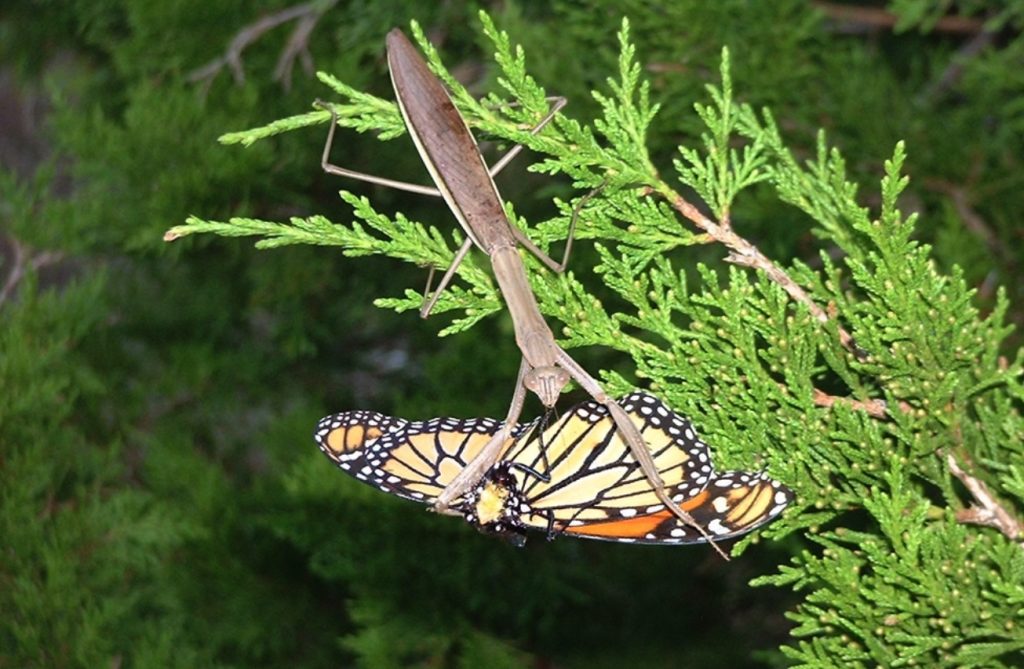
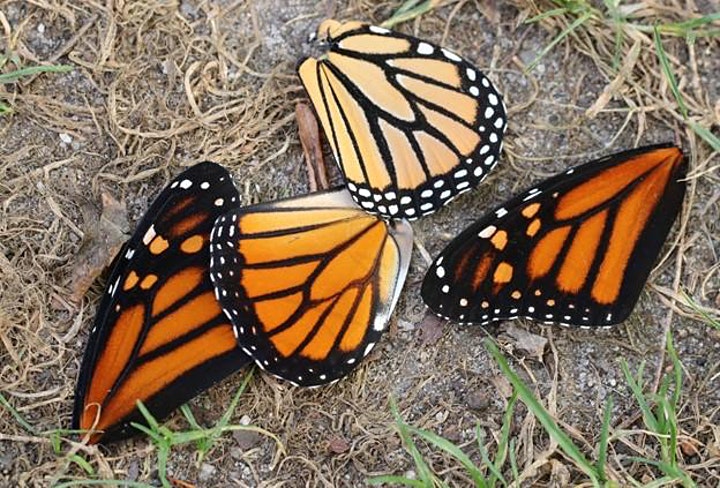
A fallen Monarch… a beautiful female taken by the hungry claws of a mantis.
They eat the butterflies head and body after stripping off their wings, as seen here,
where the wings are left to blow away in the wind.
NEW JERSEY AUDUBON’S PROGRAM GUIDELINES:
New Jersey Audubon field trips and programs adhere to CDC guidelines; leaders have the right to ask a participant to leave the program if someone is not adhering to these guidelines for the health and safety of all. Leaders and participants must wear face coverings throughout the program and maintain social distancing (at least 6’ of separation). Leaders may remove their face covering in order to be heard by the group while maintaining social distance. Please do not come to a program if you are sick or have a sick family member. There will be no sharing of equipment including binoculars or spotting scopes.
***If you have spent time in a state that appears on New Jersey’s Travel Advisories, we request that you do not attend the program and will provide a full refund.***
WHAT TO BRING: It is recommended to bring your own clippers, if you want to help remove the egg masses from trees. Bring binoculars if you have them.
TRANSPORTATION: We may walk up to 1.5 miles, over generally level, sometimes muddy or sandy terrain. Some trips involve walks over jetties.
CANCELLATION: CMBO programs require a minimum number of registrants to run, five days in advance of the start of the tour, but are seldom cancelled. If we do cancel, due to lack of participation, severe weather, or unforeseen circumstances, we notify all participants in advance and all are eligible for a full credit or refund. Participants may cancel without penalty if greater than 30 days in advance. Cancellations 10 to 30 days in advance may be subject to a 25% service charge. No refunds or credits for cancellations less than ten days in advance unless due to health emergencies.




